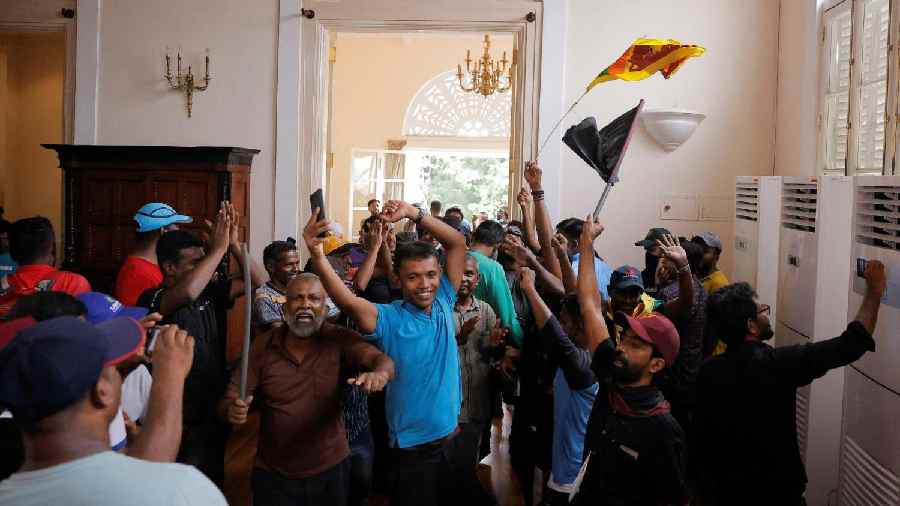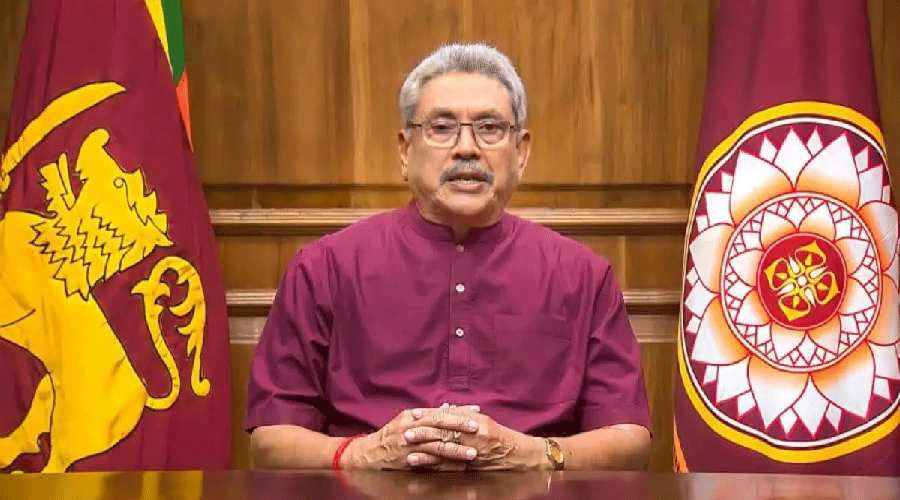In its first reaction to the massive political turmoil in Colombo, India on Sunday said it stands with the Sri Lankan people in their aspirations for prosperity and progress through democratic means, established institutions and constitutional framework.
The comments by the Ministry of External Affairs (MEA) came a day after thousands of angry protesters stormed embattled President Gotabaya Rajapaksa's official residence and set Prime Minister Ranil Wickremesinghe's private house on fire, in the culmination of months of agitation over the ongoing economic crisis.
MEA Spokesperson Arindam Bagchi said India continues to closely follow the developments in Sri Lanka and that it is aware of the many challenges that the country and its people have been facing.
Gotabaya Rajapaksa on Saturday announced that he will resign. Prime Minister Wickremesinghe also said that he will step down after a new government is formed.
"India is Sri Lanka's closest neighbour and our two countries share deep civilizational bonds. We are aware of the many challenges that Sri Lanka and its people have been facing, and we have stood with the Sri Lankan people as they have tried to overcome this difficult period," Bagchi said.
The MEA spokesperson noted that India stands with the people of Sri Lanka.
"India stands with the people of Sri Lanka as they seek to realise their aspirations for prosperity and progress through democratic means and values, established institutions and constitutional framework," he said.
In responding to media queries on the situation in Sri Lanka, Bagchi also referred to India's financial assistance to the island nation this year.
"In pursuance of the central place that Sri Lanka occupies in our Neighbourhood First policy, India has extended this year itself an unprecedented support of over USD 3.8 billion for ameliorating the serious economic situation in Sri Lanka," he said.
The island nation is reeling under severe shortages of food, fuel and medicines in the last few months as the economic crisis deteriorated.
As the economic crisis worsened, Sri Lanka witnessed massive street protests in the last months and the public anger led almost all the cabinet ministers to quit the government.
President Rajapaksa appointed Wickremesinghe as Prime Minister in May to deal with the situation.
There were growing calls for resignation by Gotabaya Rajapaksa. However, he had rejected the demand earlier.












